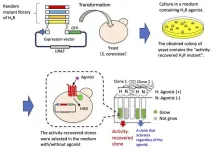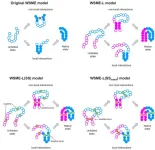Unemployment among the youth is a serious problem in many developing countries, especially in Africa. This issue stems in great part from a stagnant manufacturing sector. Firms in African countries have failed to grow significantly over the past decade, leading to fewer job positions for the youth.
Foreign direct investment (FDI) is a promising avenue for addressing this challenge. Local firms in developing countries can learn advanced technologies and management strategies from multinational companies. This transmission of knowledge, in general, helps make local companies more productive, leading to economic growth in the manufacturing sector. However, the flow of foreign technology and management know-how depends on the structure of production networks (supply chains), which means local firms may not automatically benefit from FDI.
Against this backdrop, a research team led by Associate Professor Yuki Higuchi from the Faculty of Economics at Sophia University, Japan, has recently shed further light on the relationship between FDI, knowledge transmission, and firm behavior. They used the South African automotive industry as a case study, peering into the relationships between the behavior of vehicle assemblers and parts suppliers, which represent foreign companies and local firms, respectively.
Their paper, published in The World Economy on 23 August 2023, was co-authored by Dr. Justin Barnes of the Gordon Institute of Business Science at the University of Pretoria, Dr. Anthony Black of the School of Economics at the University of Cape Town, and Dr. Keijiro Otsuka of the School of Economics at Kobe University.
The team collected firm-level data from the South African Automotive Benchmarking Club, containing information about the location, ownership, and “tier level” of automotive firms in South Africa. In this study, the “tier” of a firm refers to its relative position in the supply chain. Put simply, first-tier firms supply products directly to the foreign assemblers, whereas second-tier firms supply products to first-tier firms, and so on. Most of the lower-tier firms were local, whereas some of the first-tier firms were foreign-owned.
The researchers conducted various statistical analyses using annual observations from 162 firms between 2002 and 2017, focusing on key performance indicators representing business performance, management, and growth. Through regression analysis, they gained insights into how multinational assemblers and local suppliers responded to the expansion of the automotive industry in South Africa. “Our approach serves to illustrate the presence, or lack thereof, of the transmission of technology and knowledge from foreign assemblers to other firms,” explains Dr. Higuchi. “It is a novel analysis regarding FDI spillovers from foreign assemblers to various layers of local suppliers.”
These analyses revealed that while the production of first-tier suppliers increased with the expansion of automobile production in South Africa, a similar growth was not observed among lower-tier suppliers. This suggested that the automotive supply chain in South Africa cannot be represented by a pyramid, as typically observed in Southeast Asia, especially in Thailand, with assemblers on top and the rest of the tiers occupying the wider layers below. Instead, it would have a diamond shape, with a comparatively smaller share of second- and lower-tier suppliers.
The researchers suggested that the benefits of FDI and the associated technology transfer have not reached second- and lower-tier firms. “While South Africa’s industrial policies might have aimed to increase local content, they instead enabled downstream firms, including foreign assemblers and first-tier suppliers, to replace locally produced parts with imported ones,” points out Dr. Higuchi. “Such policies have resulted in a missed opportunity for employment creation as the production of parts suppliers in the lower tiers is labor-intensive.” Moreover, the firm-level data suggested that only multinational, and not local, first-tier suppliers benefited from knowledge transmission, which further exacerbates the current problems.
Overall, the present findings bring pertinent issues to light and can serve as a starting point for working toward feasible solutions. Dr. Higuchi states: “I am currently working with the Japan International Cooperation Agency to provide training in Japanese-style Kaizen management to parts suppliers in South African automotive industry. I hope that this project will increase their productivity and contribute to industrial development in Africa.”
Title of original contents
FDI, production networks and firm behaviour: Evidence from the South African automotive industry
Journal
The World Economy
DOI
10.1111/twec.13491
Authors
Yuki Higuchi1, Justin Barnes2, Anthony Black3, and Keijiro Otsuka4
Affiliations
1Faculty of Economics, Sophia University,2Gordon Institute of Business Science, University of Pretoria, 3School of Economics, University of Cape Town,4Graduate School of Economics, Kobe University
About Sophia University
Established as a private Jesuit affiliated university in 1913, Sophia University is one of the most prestigious universities located in the heart of Tokyo, Japan. Imparting education through 29 departments in 9 faculties and 25 majors in 10 graduate schools, Sophia hosts more than 13,000 students from around the world.
Conceived with the spirit of “For Others, With Others,” Sophia University truly values internationality and neighborliness, and believes in education and research that go beyond national, linguistic, and academic boundaries. Sophia emphasizes on the need for multidisciplinary and fusion research to find solutions for the most pressing global issues like climate change, poverty, conflict, and violence. Over the course of the last century, Sophia has made dedicated efforts to hone future-ready graduates who can contribute their talents and learnings for the benefit of others, and pave the way for a sustainable future while “Bringing the World Together.”
Website: https://www.sophia.ac.jp/eng/
About Associate Professor Yuki Higuchi from Sophia University
Dr. Yuki Higuchi obtained a B.A. degree in Sociology from Kyoto University in 2009 and completed M.A. and Ph.D. from GRIPS in 2010 and 2014, respectively. He joined Sophia University as an Associate Professor in 2020, where he teaches Development Economics and Econometrics. His research focuses primarily on industrial development, structural transformation, management of private and public organizations, and human capital development. He has published over 10 journal articles on these topics. He is a member of the Japan Economic Association, the American Economic Association, and the Japanese Association for Development Economics, among others.
Funding information
This work was supported by the Japan Society for the Promotion of Science (JSPS) KAKENHI [grant numbers 18H00850, 21H00714] and the Murata Science Foundation.
END






